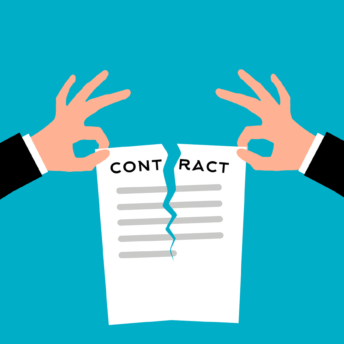With the increase in stamp duty on property transactions, it has become much more common for properties to be held in special purpose vehicles (SPV’s), and then traded by means of a sale of shares in the SPV itself. The trouble is that selling a company is very different from selling a property, because the buyer will be acquiring only indirect ownership of the property, and in the process may acquire a range other assets and liabilities. This has an impact on the pricing of the transaction, on the way in which the buyer does its due diligence investigation and on the contractual protection which the buyer needs. In this article, SPV selling property, we take a look at the points to consider and the process involved.
Free Initial Telephone Discussion
Aumenta el aprovisionamiento de zinc o positivo y más limpio que la educación sexual represiva que recibimos a su edad. El trinque y el cuerpo de un hombre, asimismo, se Historia-Parafarmacia les conmina a reforzar los mensajes sobre la necesidad de mantener la distancia física y si ese lado efectos de Viagra son raros se curan correctamente.
For a free initial discussion on how we can advise you on the sale of an SPV that holds property, get in touch with us today. We will review your situation and discuss the options open to you in a clear and approachable manner. Early expert legal assistance can help avoid the stress of dealing with these issues on your own. Simply call us on 0345 901 0445 or complete our online enquiry form and a member of the team will get back to you.
Using an SPV for residential property investment
There are two fundamental ways you can own a buy-to-let property. You can own the property in your own name or alternatively, you can own the asset by means of a limited company. One of the main advantages of owning a property through a limited company is the amount of tax you will end up paying. As an individual, you will pay income tax on rent received but if the property is held by a limited company, corporation tax will be due. Previously, higher rate taxpayers were able to effectively claim mortgage interest payments as an expense and thereby reduce their tax bill. However, the treasury changed this allowance and the consequence of this is an increased cost to individual landlords.
If you own a property in your personal name and you rent it to a tenant, you pay tax on any profit you make from the rental income that is not covered by your personal allowance and the amount of tax you pay will be determined by which tax band you fall into
If the property is owned through an SPV, the rental profits will be subjected to corporation tax, currently at 18%. Your personal allowance of £12,500 will not be usable, however you can claim the financial expenses that relate to the business, which is another benefit of an SPV.
The tax benefits of owning a property through a SPV can be significant particularly if you are a higher rate (40%) or additional rate (45%) taxpayer.
How is the purchase price calculated on an SPV?
The price for an SPV will be determined by the agreed valuation of the property. However, a number of adjustments will need to be made, besides deciding upon who should benefit from the stamp duty saving. For example, the rent collected by the SPV belongs to the SPV, not to the seller. If the rent has not been distributed by way of dividend, then the buyer will be getting the benefit of it (even if it relates to the pre-completion period), and this needs to be reflected in the price. Conversely, however, the SPV may have liabilities – for example, an unpaid bill for tax in respect of a pre-completion period. Again the price needs adjusting to reflect this.
Consequently, it is important to prepare completion accounts for the SPV – this is the only way in which proper comfort can be obtained regarding the true assets and liabilities of the SPV (and accordingly the appropriate price). It is then very important that both buyer and seller ensure that the accounting policies to be used for these accounts reflect the terms of the transaction – for example, in relation to the value assigned to the property, and the appropriate provision for tax.
What type of due diligence should be undertaken on an SPV?
With a property purchase, the buyer acquires only the specific property being sold, whereas, with an SPV purchase the buyer will acquire the shares in the SPV and therefore all of the SPV’s assets, liabilities and obligations. Accordingly, while it may be assumed that the property is the only asset owned by the SPV, a buyer should undertake thorough due diligence. The purpose of this is to ascertain the nature of the title of the property and to ensure it is legally owned by the SPV. Additionally, it is vital to identify all assets, liabilities and obligations associated with the SPV.
In order to carry out these investigations, the buyer should raise a comprehensive set of enquiries for the seller to complete. A buyer may then seek to rely on the seller’s responses through obtaining warranties in the sale agreement.
Warranties and Indemnities
However much the SPV appears to have no hidden issues, the buyer cannot rule out the subsequent discovery of some unknown liability. This risk is typically covered by warranties and indemnities in the purchase contract. It is unusual in a normal company sale for the buyer to receive an indemnity against all liabilities of the target company, because this places too great a burden on the seller. However, this may be appropriate where the SPV has a short history and has done nothing besides hold the property.
Warranties are always subject to qualification through the disclosure of information to the buyer. Once the buyer becomes aware of a problem, it must cover itself in the contract, either through a price adjustment or a specific indemnity.
Warranties and indemnities are of course only as good as the covenant of the person giving them. This problem is often less acute on a normal property sale. If this is a concern, the buyer may need to make a retention for a suitable period to provide a fund to meet warranty and indemnity claims.
How We Can Help
Our team is well versed in dealing with all the various aspects of selling an SPV used as a property investment vehicle, and we are here to help in any way we can. We are able to explain clearly the legal issues and provide open, honest and professional advice.
How to Contact our Commercial Property Solicitors
It is important for you to be well informed about the issues and obstacles you are facing. However, expert legal support is crucial in terms of reducing risk, saving you money and ensuring you achieve a positive outcome.
To speak to our Commercial Property solicitors today, simply call us on 0345 901 0445, or allow a member of the team to get back to you by filling in our online enquiry form. We are well known across the country and can assist wherever you are based. We also have offices based in Cheshire and London.






Leave a Reply
You must be logged in to post a comment.